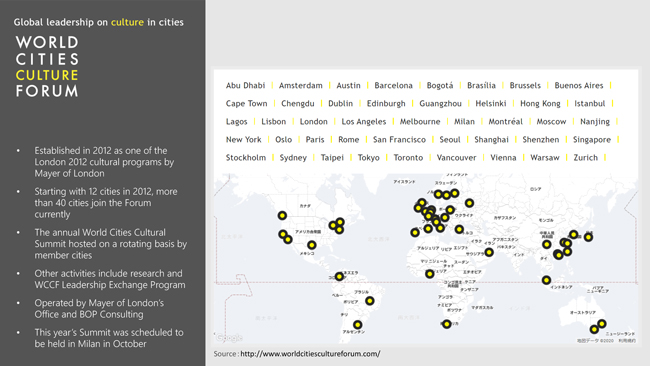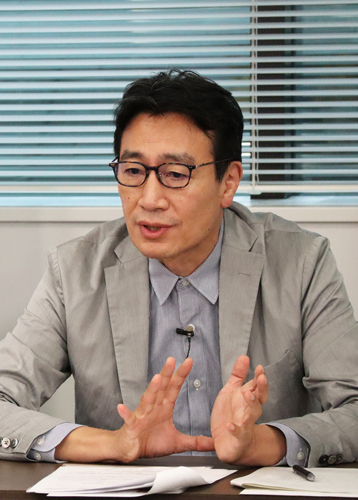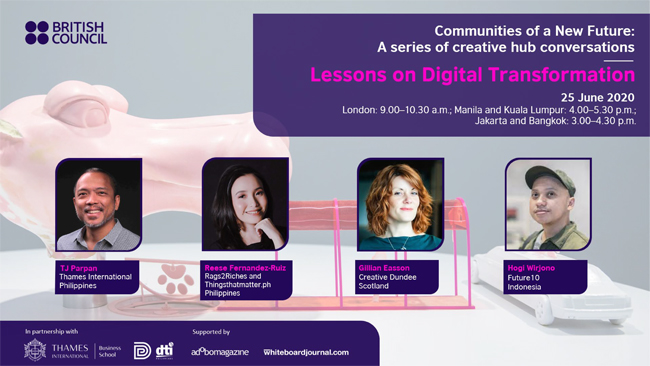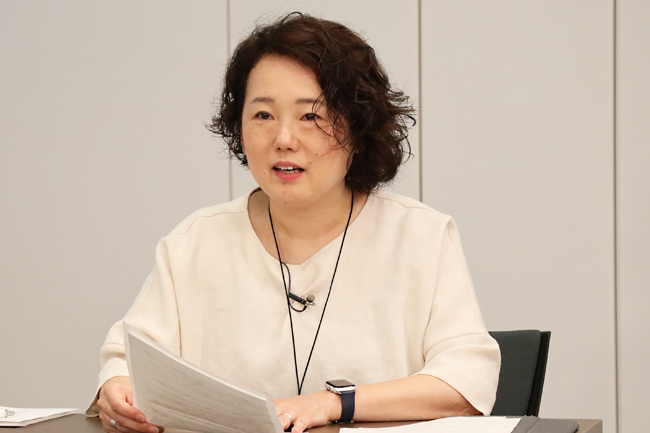
ASIA HUNDREDS is a series of interviews and conference presentations by professionals with whom the Japan Foundation Asia Center works through its many cultural projects.
By sharing the words of key figures in the arts and cultures in both English and Japanese and archiving the "present" moments of Asia, we hope to further generate cultural exchange within and among the regions.
"A summary of the first installment of the Japan Foundation Asia Center's online seminar series "Asia Center TERAKOYA" about theater in this time of COVID-19, which took place on July 8, 2020"
The COVID-19 pandemic has changed people's lives in many ways.
From the initial stages characterized by self-restraint and nervous uncertainty about this novel coronavirus, the focus has now shifted to a phase in which people are seeking out new-normal values and lifestyles suitable for a new era of coexistence with the disease.
While this has led to some theatres gradually reopening with strict hygiene protocols in force, it has also seen moves by many artists aiming to distribute works and information online.
In July, the Japan Foundation Asia Center started an online seminar series called TERAKOYA (named after the temple schools that were important public educational institutions from early in the 19th century).
To launch the series, four presenters experienced in the field of international arts and culture exchange were invited to talk about new possibilities of artistic activity, and effective ways of pursuing international exchange, under the current circumstances of closed borders and many artists being unable to perform or exhibit due to COVID-19.
Report on the present state of international exchange by YOSHIMOTO Mitsuhiro
Yoshimoto Mitsuhiro, director of Center for Arts and Culture at the Tokyo-based NLI Research Institute, spoke from his recent experience with the World Cities Culture Forum, of which he has been a member since 2012.
He explained that the WCCF normally holds its annual summit in one of its 43 member cities in turn, discussing and sharing members' belief in the importance of cultural policies for cities that are in step with the times. Due to the pandemic, however, the 2020 forum has been postponed until next year. Under these circumstances, Justine Simons, the Chair of the WCCF (and London's Deputy Mayor for Culture and the Creative Industries), said it was more important than ever for members to come together to share the challenges they were facing and learn from one another. As a result, the WCCF has been holding Zoom meetings every two weeks since the end of March.
For Mr. Yoshimoto that unexpected initiative broke new ground, but looking back on it now he says, "It is very useful, as the function of WCCF's platform is reinforced through those regular online meetings."
Furthermore, he said that through this experience he has found out there is something he termed "online real," which is distinct from online, virtual or face-to-face meetings. In fact he predicts that if people continue to develop "online real" communication, and use it efficiently, it will become a regular way of holding international meetings in the future, and a new means of conducting online education worldwide.
However, he also sounded an alarm, warning that people will require pressing reasons to hold conventional face-to-face international meetings once online communication becomes the norm.
Then, referring to the present circumstances in the arts, specifically theatre and galleries, he said that each artist will need to exercise their originality and ingenuity even more to develop new practices in response to the world after this virus.

"I wonder what sorts of theatre will be created subject to having to keep half the number of seats empty. I rather expect great artists will invent unique, individual approaches and create fresh new forms of artistic expression using online techniques, or make ground-breaking works that overturn many of the pre-pandemic values."
Finally, Mr. Yoshimoto said he assumes that technology will rapidly improve along with the use of online communication tools, and that the production and delivery of online arts and theatre will also improve quickly. In addition he noted that new arts movements related to "online real" are already taking off in other countries.

A new endeavor by the international organization, the British Council
The British Council is the United Kingdom's international organisation for cultural relations and educational opportunities. Governed by a royal charter, it has a presence in more than 100 countries and works in English education, higher education and the arts to encourage international partnerships and cultural exchange.
The project manager of its Arts Department in Japan, YUASA Manami, said the Council had to cancel several events due to the pandemic. However, following discussions she and her team had with colleagues in other Asian countries and the London headquarters, in light of COVID-19 they decided to shift gradually from the conventional face-to-face style of operations to online communications.
For example, she said the Council has started a campaign titled Culture Connects Us to distribute online English-language learning and teaching materials worldwide, and to introduce today's British music and arts across the globe.
Ms. Yuasa was also able to report that the Council unexpectedly gathered more than 3,000 participants for a recent webinar (online seminar) held in India — instead of the more limited number who attend its normal forum-style events. She said that was because many people could join the webinar from their homes, even though some were living in isolation in lockdown areas. Similarly, people from 21 countries were able to join a Zoom discussion event the Council held in June.
From such results, Ms. Yuasa said she feels there are new possibilities for online networks that present people with fewer restrictions in terms of time and place. "Now, we are talking about how we can use online platforms not just for meetings," she says, "but making new ones where British and Japanese artists can work in collaboration or exchange their opinions."









